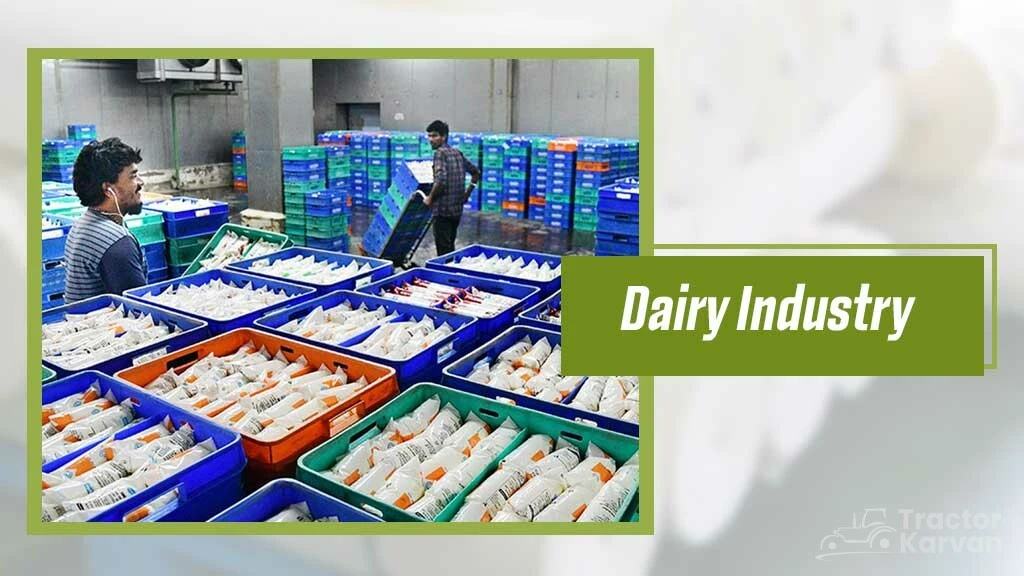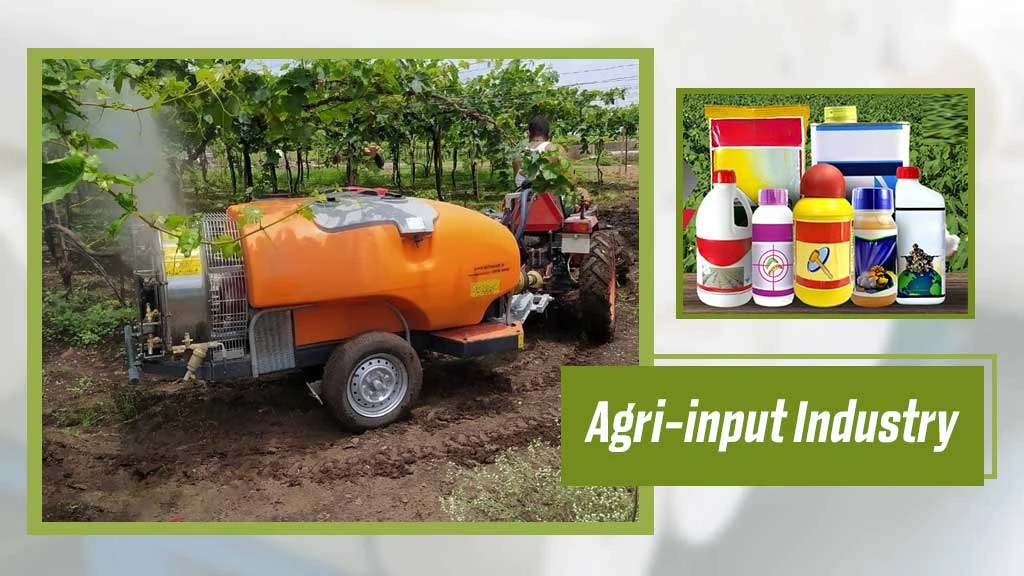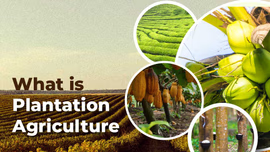Agro-based Industries in India: Bridging the Gap Between Agriculture and Economy

Agriculture is viewed as the symbol of the first stage of development, and a country’s progress is indicated by its degree of industrialization. Interdependence between agriculture and industries has grown in the recent decade due to the modernization of agriculture. Agro-based industries use the raw material derived from agricultural produce, such as tea and sugar, as input to produce the final output. Agro-based industries play an important role in bridging the gap between agriculture and the broader economy. Let’s delve into the blog to know more about the major agro-based industries in India.
Table of Contents
- What are Agro-based Industries?
- What is the Importance of Agro-based Industries?
- What are the Main Types of Agro-based Industries?
- List of Agro-based Industries in India
- What are the Major Agro-based Industries in India?
- What are the Top 10 Agriculture Companies in India?
- What are the Challenges Faced by Agro-based Industries?
- What are the Schemes for Agro-based Industry?
What are Agro-based Industries?
Agro-based industries use agricultural products as their raw materials for manufacturing products like biofuels, food, textiles, and other value-added goods. The processing of raw agricultural produce increases its economic value, which benefits both farmers and the industry. These industries are part of the agriculture sector, which collectively contributes around 18% to India's GDP. They are mostly consumer-based industries, as the agricultural products manufactured are directly sold to consumers.
Agro-based industries are directly or indirectly linked to agriculture. These industries not only add value to the agriculture products but also generate significant employment opportunities and ensure the overall development of rural areas in India. In this sense, they are the critical bridge between the broader economy and the agriculture sector.
What is the Importance of Agro-based Industries in India?
In 2021, the former Vice President, M Venkaiah Naidu, promoted agro-based industries as a tool to create employment opportunities in rural areas. Besides, it has an important role in the sustainable development of India. Let us see some of the critical roles of these industries.
- Agro-based industries help create job opportunities in areas with limited source of alternative income opportunities. Besides, they also help check rural-urban migration.
- These industries help create demand for the agricultural products, thus boosting the overall production and providing higher returns to the farmers. As a result, the standard of living of people dependent upon agriculture improves, and overall economic growth is high.
- They have the potential to contribute to the overall GDP of the country as they add value to the agricultural products through processing and manufacturing.
- They help foster food security in the nation by providing a steady supply of processed foods essential for rural and urban populations.
- They empower farmers and rural communities by creating value chains and providing market access.
- These industries are also key to sustainable development as they encourage many sustainable farming practices and use renewable resources on a large scale.
What are the Main Types of Agro-based Industries?
Mainly, there are four types of Agro-based industries. Let’s understand each in more detail.
Agro-produce Processing Units
- What they do: Process raw materials that can be stored for later use and can be transported at cheaper costs.
- Example: Rice Mills and Dal Mills
Agro-produce Manufacturing Units
- What they do: Manufacture new products that are entirely different from the original raw material.
- Example: Textile Mills, Sugar Factory, and Bakery
Agro-inputs Manufacturing Units
- What they do: Manufactures inputs/products that improve the overall agricultural productivity.
- Example: Fertilizer and Pesticide Unit, Agricultural Implements, Seed Industries
Agro Service Centres
- What they do: Repairs and maintains the agricultural implements and farm-related equipment.
- Example: Repairing & Servicing of Pump Sets, Diesel Engines, Tractors, and all types of Farm Equipment
List of Agro-based Industries in India
- Textile Industry
- Dairy Industry
- Sugar Industry
- Vegetable Oil Industry
- Tea Industry
- Coffee Industry
- Leather Goods Industry
- Jute Industry
- Bamboo Industry
What are the Major Agro-based Industries in India?
Textile Industry

The textile industry is one of the major contributors to the GDP growth and foreign exchange. India is the 3rd largest exporter of textiles and apparel worldwide. This industry is self-reliant and generates everything from raw materials to the final goods for its own customers. The textiles and apparel industry has a contribution of 12% to exports, 13% to industrial production, and 2.3% to the country’s GDP.
The raw materials used by the textile industry are cotton, silk, jute, and sometimes artificial fibre. The final products are clothes, household items, etc. The textile industry involves spinning, weaving, processing, and apparel manufacturing. Maharashtra and Gujarat are the top cotton textile-producing states in India.
The cotton industry is the source of livelihood for around 60 million individuals in India. Being the leading producer of cotton, India accounts for 23% of global cotton production. In FY25 (until December 2024), the cotton exports were valued at Rs. 73,233 crores.
India accounts for around 75% of the global production of jute goods. The major products of the jute industry are food-grade jute cloth, shopping bags, decorative fabrics, blankets, hessian or burlap, etc. The major jute-producing states are Assam, West Bengal, Orissa, and Bihar.
Food Processing Industry

The Indian food processing industry is one of the biggest food processing industries in the world. Sugar, tea, coffee, and oil are some of the major food-processing industries in India.
The sugar industry is the second-largest agro-based industry of India, impacting the livelihood of more than 5 crore people. India is the largest producer and consumer of sugar in the world. The share of the sugar industry in the GDP is around 1-1.15%.
The tea and coffee industries are also important for the national economy. Indian tea is renowned worldwide, and almost 80% of the tea produced is consumed by the domestic population. The total tea exported by India in FY24 was 250.73 million kg, worth over Rs. 6,000 crores. The total tea production was around 1382 million kg. During FY24, India became the 7th-largest coffee-growing country in the world. The exports were valued at around Rs. 11,012 crores. India mainly produces Robusta and Arabica coffee. Karnataka, Kerala, and Tamil Nadu are leading producers of coffee in India.
The contribution of India to the global oilseed production is 5-6%. In the financial year 2023-24, the total export of oilseeds, minor oils, and oil meals was around 5.44 million tons worth Rs. 29,587 crores. The domestic consumption is so high in India that it is the net importer of edible oils. Overall, the states of Maharashtra, Rajasthan, Maharashtra, and Gujarat are the leading contributors to this sector.
Dairy Industry

Dairy industry in India contributes almost 4% to India’s GDP. India is the largest producer of milk, with production of around 239 million metric tonnes. The Indian dairy market is amongst the largest and fastest-growing markets in the world. Uttar Pradesh is the highest milk-producing state in India, followed by Rajasthan, Madhya Pradesh, and Gujarat. In this business, the raw material is milk, and the finished products are paneer, curd, cheese, butter, etc.
Agri-input Industry

The agriculture input industry is another important Agro-based industry of India. These are the external resources used to promote the overall crop and livestock production. The use of machinery, tractors, fertilizer and pesticides, and seed processing inputs all are essential part of the agricultural practices. India’s Agri-inputs market alone boasts a significant 44 billion dollars valuation, driven by over 5 lakh agri-input retailers serving as vital sources for farmers.
What are the Top 10 Agriculture Companies in India?
- Amul
- ITC Agribusiness Division
- Shree Renuka Sugars Ltd.
- Godrej Agrovet Ltd.
- Jain Irrigation Systems
- UPL Ltd.
- Rallis India Ltd.
- Mahindra Agribusiness
- Arvind Ltd.
- Suguna Foods Pvt Ltd.
What are the Challenges Faced by Agro-based Industries?
- Seasonal changes, crop vulnerability, and changes in cropping patterns.
- Financial constraints and uncertainty about future market demands.
- Lack of the supply of the same variety of fruits and vegetables in bulk.
- Absence of information about the quality and quantity of the market.
What are the Schemes for Agro-based Industry in India?
- Scheme for Capacity Building in Textile Sector (SAMARTH)- This is a flagship scheme by the Ministry of Textile, Govt. of India, to provide skills and training to the people in creating jobs and to provide livelihood to all sections of the society across the country.
- Production Linked Incentive (PLI) Scheme - The PLI Scheme is intended to promote the production of MMF Apparel & Fabrics and Technical Textiles products in the country. Its aim is to create job opportunities for the people of India.
- Pradhan Mantri Kisan SAMPADA Yojana (PMKSY)- The objective of PMKSY is to supplement agriculture, modernize processing, and decrease Agri-Waste.
- Production Linked Incentive Scheme for Food Processing Industry (PLISFPI)- This is a central scheme and helps to support the creation of global food manufacturing champions corresponding with India’s natural resource endowment and support Indian brands of food products in the international market.
Pradhan Mantri Mudra Yojana (PMMY)- This scheme offers collateral-free Mudra loans up to Rs. 20 lakhs for supporting non-farm income-generating activities across a wide range of agro-based industries.
Frequently Asked Questions On Agro-based Industries in India: Bridging the Gap Between Agriculture and Economy
1. What are Agro-based industries?
Agro-based industries are the industries that use agricultural produce as their raw materials for manufacturing final products.
2. What are the examples of Agro-based industries?
Textile industry (cotton, jute), food processing (sugar, tea, coffee, vegetable oil), dairy industry, and leather goods industry are some examples of Agro-based industries in India.
3. What are the different types of Agro-based industries in India?
There are four types of Agro-based industries in India, namely Agro-produce Processing Units, Agro-produce Manufacturing Units, Agro-inputs Manufacturing Units, and Agro Service Centres.
4. Which is India's largest Agro-based industry?
The textile industry holds the top place among the Agro-based industries in India.
5. What are the government's initiatives to support Agro-based industries in India?
SAMARTH, Pradhan Mantri Kisan SAMPADA yojana, and PLISFPI are some government schemes to promote the Agro-based industries in India.


Related Blogs












